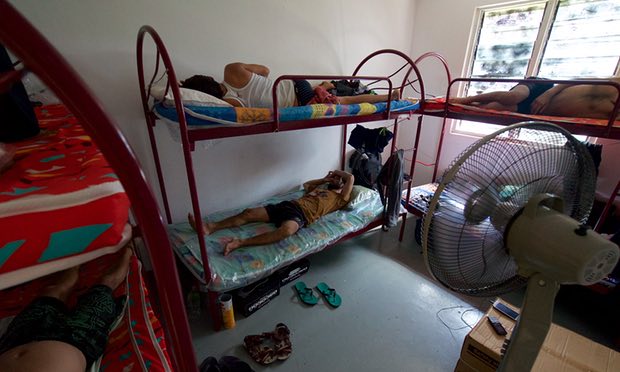
By Pete Pattisson
The Guardian 9 May 2017
Labour rights groups have cast doubt on the impact and scope of proposals by Panasonic and Samsung to address the alleged abuse of foreign migrants in their supply chains in Malaysia.
Last November, a Guardian investigation highlighted claims that workers making goods for the global electronics brands were being exploited and had been deceived about pay. Both firms have since taken steps to reform their treatment of overseas migrant employees.
Panasonic has organised a series of human rights seminars for its suppliers and established a confidential whistleblowers’ hotline to report alleged abuse, while Samsung has issued fresh guidelines to its suppliers, imposing bans on recruitment fees and the retention of workers’ passports.
Angela Sherwood, a migrants’ rights researcher at Amnesty International, welcomed the introduction of policies intended to prevent abuse, but raised questions about their implementation and enforcement.
“Is the whole business invested in stopping abuse?” said Sherwood. “Do they act decisively to deal with suppliers who exploit workers? How do they protect and support exploited workers in their supply chains?”
Golda Benjamin, south-east Asia researcher for the Business & Human Rights Resource Centre, also urged the need for stronger safeguards. “The best brands engage with suppliers and work together to protect the people who make their products,” she said.
Panasonic said an investigation of its supply chain had identified 15 companies where workers were at potential risk of abuse. But Laurent Abadie, the CEO of Panasonic Europe, emphasised the intricate nature of the inquiry, pointing out that there may be thousands of subcontracted companies behind Panasonic’s 589 direct suppliers in Malaysia.
TO READ FULL ARTICLE CLICK HERE